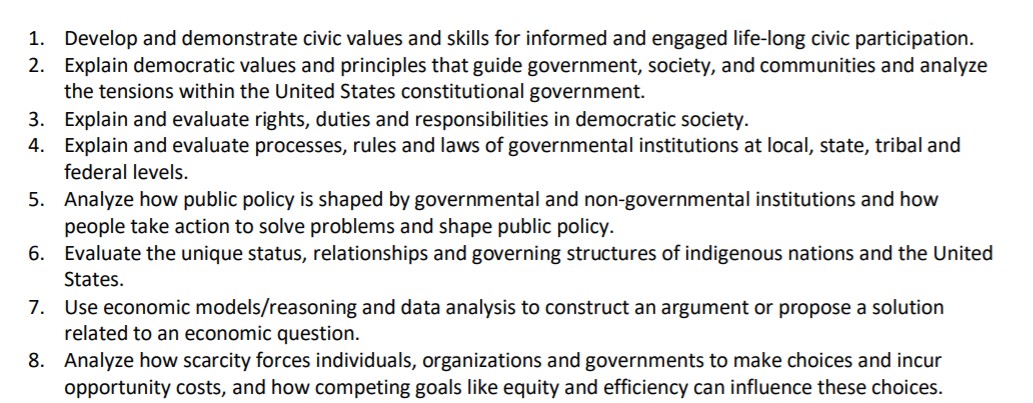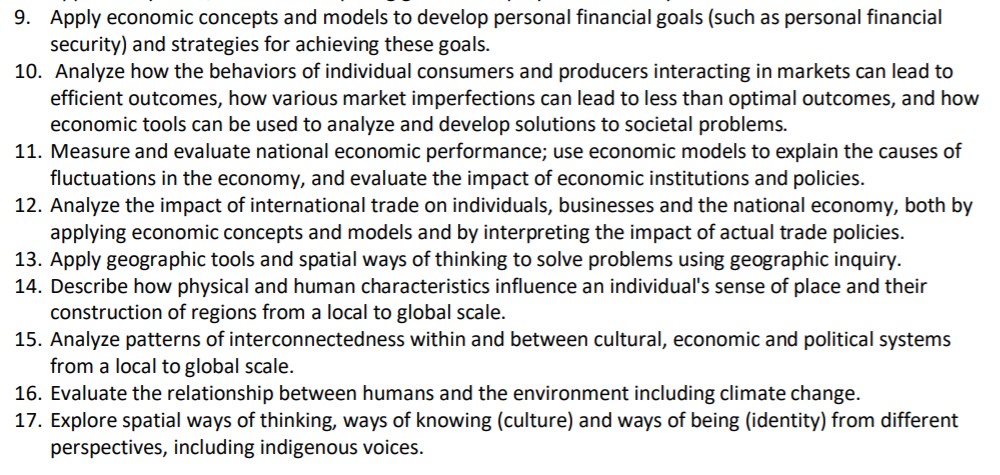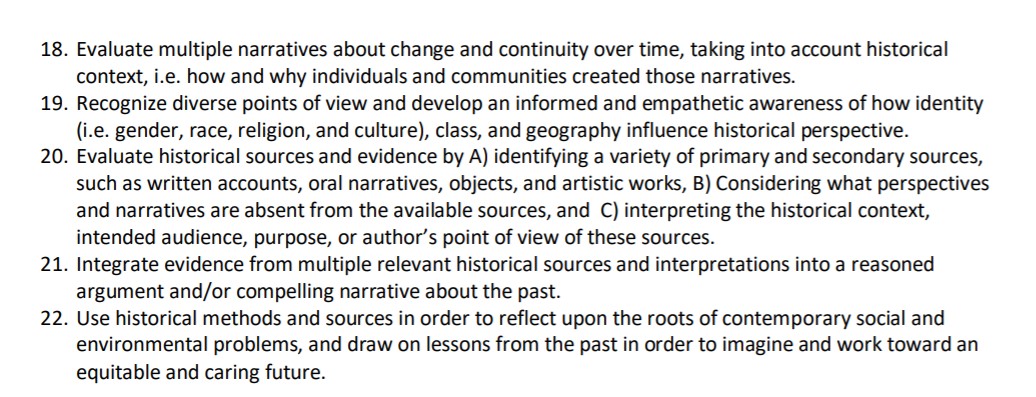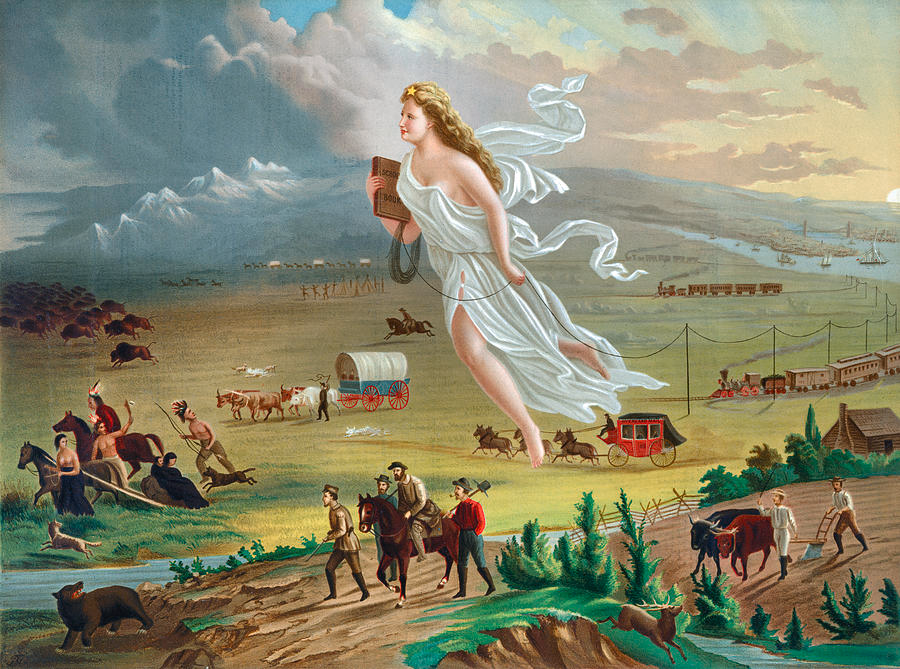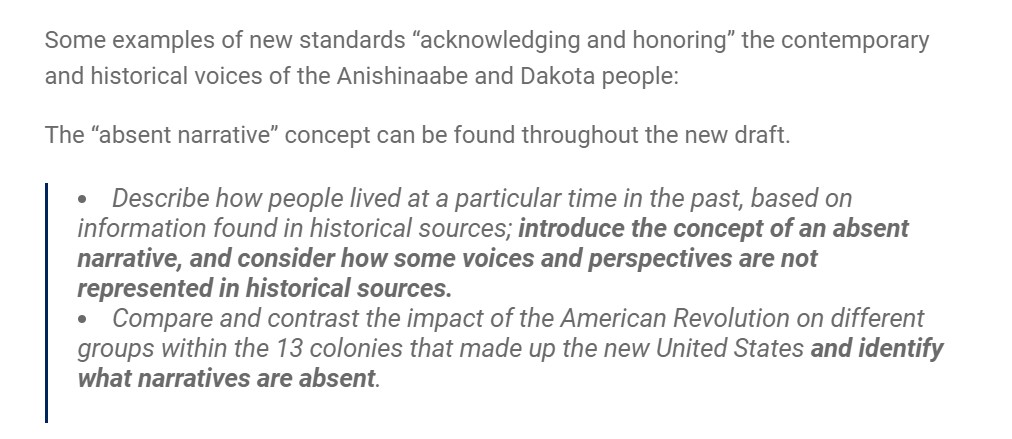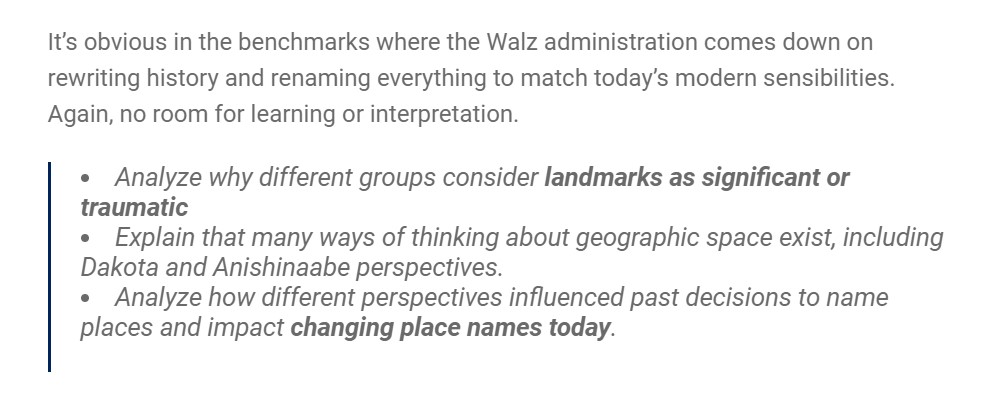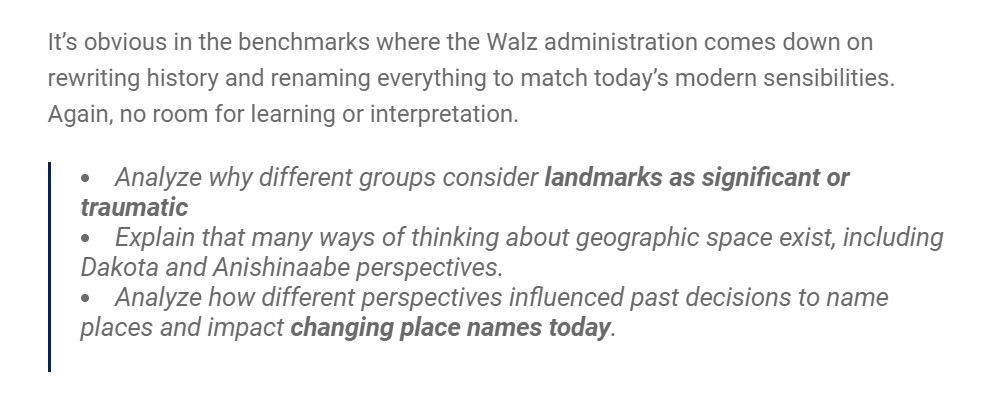Thread: MN Social Studies Standards Revision Committee
I continue to be shocked by the gross misinformation that continues to come out regarding the Minnesota Social Studies Standards revision process from members of the #mnleg and elsewhere. https://twitter.com/MarkJWestpfahl/status/1361669059536904197
I continue to be shocked by the gross misinformation that continues to come out regarding the Minnesota Social Studies Standards revision process from members of the #mnleg and elsewhere. https://twitter.com/MarkJWestpfahl/status/1361669059536904197
In this thread, I'll start w/ @sendahms, who stated in a recent FB video message that the committee wants to remove the Revolutionary War, Civil War, World War 1 & World War 2 from the social studies state standards for Minnesota. This is flat out untrue. https://www.facebook.com/watch/?v=330569098319139
Also suggested by @sendahms and the Center for the American Experience is that presidents - all mentions of Abe Lincoln and George Washington & others, have been removed from the standards. This too, is a gross misrepresentation of the work the committee has done.
Here is what HAS happened so far:
The Social Studies Revision Committee, which comprises of more than 40 members from around the state, has taken the way we have normally seen standards presented (Standard, Strand, Benchmark as seen in https://education.mn.gov/mdeprod/idcplg?IdcService=GET_FILE&dDocName=042018&RevisionSelectionMethod=latestReleased&Rendition=primary)
The Social Studies Revision Committee, which comprises of more than 40 members from around the state, has taken the way we have normally seen standards presented (Standard, Strand, Benchmark as seen in https://education.mn.gov/mdeprod/idcplg?IdcService=GET_FILE&dDocName=042018&RevisionSelectionMethod=latestReleased&Rendition=primary)
and repackaged it into approximately 22 themes, known as "anchor standards".
This is where I believe @sendahms, his colleagues, the Center of the American Experience & other groups/individuals likely have been led astray. Because the Abe Lincoln is not in an "anchor standard", the assumption is he has been removed. NO! This is NOT the case.
In fact, @sendahms, if you search for "Lincoln" in the current social studies standards, you will not find the name. That does not mean that he isn't mentioned in social studies classes. It also doesn't mean that the 2021 committee is "removing him" from study & inquiry.
If you are wondering where you can look up the current standards that guide social studies teachers in the state of Minnesota, you can find them here:
https://education.mn.gov/mde/dse/stds/soc/
https://education.mn.gov/mde/dse/stds/soc/
George Washington is mentioned just one time in the 2011 social studies standards and correlates to a 5th grade class. Again, this doesn't mean that teachers can/should not mention the 1st president & it certainly doesn't mean that he is being "removed" from the standards in '21
You can view the full 22 (1st draft) "anchor" standards on page 3 of this document released by the @MnDeptEd. What follows on pages 4-32 is a non-exhaustive list of benchmarks for consideration as benchmarks will be further discussed later in the process, @sendahms.
For those of you wondering, gee, @MarkJWestpfahl, 22 anchor standards does not seem like all that many. You may be correct. For the record, there are currently 23 "standards" in the history portion of the Minnesota Social Studies Standards. https://education.mn.gov/mde/dse/stds/soc/
Back to the anchor standards from two tweets ago: From there, the committee is looking at ways to include, redefine and/or add additional aspects to provide a more inclusive and expansive look at how social studies content will be addressed at various grade levels.
(Reminder note to all; Again, maybe it is because they [ @sendahms, et. al.] are used to seeing the entire document laid out w/full benchmarks & examples. The review committee is not to that stage yet, and they have been very clear with that communication.)
Minnesota Statutes, section 120B.018, requires that there be statements of standards and benchmarks. Standards are a summary description of student learning. The benchmarks identify the learning that is to be accomplished by all students. #mnleg
You can find that statute120B.018 here: https://www.revisor.mn.gov/statutes/cite/120B.018.
Yes, the social studies revision committee has a long way to go before the release a second draft, gather more public comment and then release their final recommendations.
Yes, the social studies revision committee has a long way to go before the release a second draft, gather more public comment and then release their final recommendations.
So again, the work of the committee is admittingly far from done. That is why they are meeting again to provide more detail and a more complete 2nd draft.
When @sendahms suggested that the Civil War does not even appear in the preliminary document, I am not sure where he and his colleagues are receiving their information. You can view 20.9.4 in the rough draft. Can/should this go much further? Yes, it should. I believe it will.
As for the timeline that @Sendahms stated in the video, the Social Studies Standards Revision Committee did not meet in Feb and will meet again on Thursday, March 25. Their next working draft (not a final proposal) will not come out until at least April. https://education.mn.gov/mde/dse/stds/soc/
Further, @Sendahms suggests that the revision committee would like to remove the American flag and the pledge of allegiance from the social studies standards.
For the record, the American flag and the pledge currently only appear in kindergarten and 1st grade standards and you can see those here. This does not mean I can not teach about them later. I certainly do, because the standards allow my to use historic inquiry and reasoning.
Maybe @Sendahms is referencing a current state statue based on the American Flag and the Pledge of Allegiance, which can be found here - 121.A11 https://www.revisor.mn.gov/statutes/cite/121A.11 - but I do not believe that is the case.
I'm confused why @Sendahms would be opposed to this in the new standards: "Define freedom and democracy, and examine how different groups have been included or excluded from the ideals throughout American history." (Proposed 18.7.1)
So, @Sendahms, are we actually still debating, in 2021, that certain groups of people were excluded from participation in the United States? We have not seen enough historic documentation to know, without a shadow of a doubt that groups HAVE been excluded?
I'll just name a few @Sendahms; African Americans were enslaved. The Supreme Court upheld that Dred Scott was the same as "chattel". Indigenous people were considered "barbaric", "savage" and "inhumane" according to state legislation and the Supreme Court.
A few more, @Sendahms, women were not allowed to vote and or own property. People could not marry outside of their race. Shall I go on? There are hundreds of more examples.
Also concerning to @Sendahms is the "analysis of the ideology of Manifest Destiny and its relationship to whiteness, Christianity, and capitalism."
I have taught about manifest destiny for more than a decade. @Sendahms, the concepts are absolutely routed in the idea of expansion though capitalism with a divine right appointed by God to allow for the movement.
This concept has rarely been disputed, @Sendahms, especially seeing as we have the words of so many pioneers of the day who define their experience that way. We see expansion of business & gov. deals that were created based solely on these premises. We have the historic record!
One of the larger issues that the Center of the American Experience has is (and I do not know if @Sendahms shares the sentiment, but he asked people to go to their website to learn more about this issue, so I'll assume a correlation)
"Let’s be clear: Gov. Tim Walz wants all social studies standards to be viewed through the lens of “honoring” the Anishinaabe and Dakota people. This is a radical change to the way we teach history, civics, geography and economics in Minnesota." ~ @MNThinkTank
What is the radical change, @Sendahms? As a social studies teacher, am I only supposed to conform to the idea that indigenous people are not people at all and that my German and Irish ancestors settled here when it was completely open and unoccupied land?
Should I, or should I not talk about this in my class? How are you suggesting that I should teach it? I am honestly open to hear your perspective, @Sendahms? Do I talk about the good, bad and ugly, or just the narrative that showcases glory for one side?
The Center of the American Experience is also upset that the Minnesota Social Studies Standards Revision Committee has chosen to include “absent narrative” into the format of the standards. @Sendahms
Again, @Sendahms, I am trying to understand why we don't want to have a more inclusive representation of the people who make up our state and our state's history.
For example @Sendahms, should we ignore the fact that MN has 1 of the highest Somali populations outside of Somalia? I think its a brilliant time to study the history of what was taking place there, factors allowed for settlement here (push/pull factors, as we tell our students).
Should we not, @Sendahms, talk about factors that led to 1 of the largest Hmong populations in our country being located in St. Paul/Minneapolis through the lens of historic, geographic & economic rationelle? Should we not hear directly from people who lived the experience(s)?
Why are we purposefully making the choice to exclude narratives that exist? Is it simply because we do not value their input? Do we feel that their voices should not be heard when I can easily just tell the stories of my ancestors & the reasons THEY choice 2 come 2 the country?
Why is that acceptable when the other is not, @Sendahms?
As a social studies teacher, I am very concerned that "perspective" is not something that the Center of American Experience is willing to consider.
Yet, in this very image, Center of the American Experiment says "Again, no room for learning or interpretation"... then rallies against the idea of multiple perspectives designed to get students to critically think. So, @Sendahms, which way do we want it?
Senator @Sendahms and several of his colleagues are not the only ones that have misconstrued the purpose of and statutory requirements the social studies review committee. I detailed that in a lengthy tweet thread on Feb 10: https://twitter.com/MarkJWestpfahl/status/1359629152358440967
Social Studies, @Sendahms, is a very complicated issue. It is supposed to be. Our history is complex. It is diverse. It is all too often told from one perspective and when we question that perspective, or champion that perspective, we are labeled by one or more groups.
The process of revising standards is not something that is done on a whim. Based on state law, @MnDeptEd is required to review and revise its state standards every 10 years.
I am very curious to know how many law makers (from BOTH parties) have reached out to social studies teachers to ask for their input. Social studies teachers can help showcase how tricky, difficult and time consuming it is to teach this subject.
As the 2020 @Gilder_Lehrman Institute of American History Minnesota Teacher of the Year & National Finalist, 5-time @EducationMN Teacher of the Year nominee and 3-time Semifinalist, Vice President of @SocialStudiesMN and 12 year social studies teacher, I'd love to chat, @Sendahms

 Read on Twitter
Read on Twitter
